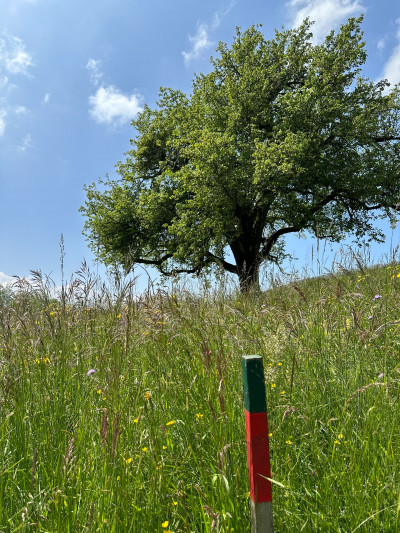Playing golf has an impact on the environment around us. Fairways, greens and other playing areas are not conducive to the development of flora and fauna. It is therefore important to create 'rest areas' for nature, as we can see in our ski resorts. The Golf de Lavaux has set up what are known as ecological zones at various points on the course. These currently cover an area of around 3 hectares.
These zones offer nature havens of peace and allow the development of quality biotopes. They help to improve biodiversity on the course and beyond. The ecological zones require very little maintenance. They receive no water or fertiliser and are mown late, allowing plants to complete their life cycle and certain animals to reproduce. They encourage the development of a wide variety of flora and are home to numerous insects, amphibians, reptiles, small mammals and birds, which find food and shelter there. These areas also help to protect against soil erosion, regulate the water cycle and store carbon. They offer a highly varied palette of colours, adding great aesthetic value to the landscape.
The local rules of Golf de Lavaux prohibit anyone from walking in these ecological zones, which are marked with red and green stakes. Players may not enter these areas, even to retrieve a ball. They must drop another ball in accordance with rule 17.1 laid down by Royal & Ancient St-Andrews.
In addition to these strictly regulated ecological zones, the Golf de Lavaux course includes areas of forest and meadow that are subject to limited maintenance. These areas, totalling around 20 hectares, are located outside the playing areas and provide a valuable refuge for flora and fauna. They allow wild flora to thrive and animals to move around the Lavaux golf course without necessarily coming into contact with the players. Finally, as part of its ecological commitments with the cantonal authorities, Golf de Lavaux also participates in local ecological projects outside the perimeter of the course. For example, as part of these ‘external’ ecological compensations, Golf de Lavaux has participated in the renaturation of a stream in the commune of Puidoux.
